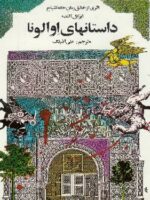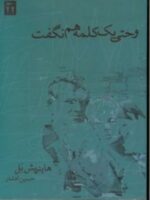German writer, winner of the Nobel Prize for Literature in 1972. Böll portrayed Germany after World War II with a deep moral vision and attacked the materialistic values of the post-war society. Böll`s unorthodox Catholic belief often marked the spiritual content of his stories. `Art is always a good hiding-place, not for dynamite, but for intellectual explosives and social time bombs. Why would there otherwise have been the various Indices? And precisely in their despised and often even despicable beauty and lack of transparency lies the best hiding-place for the barb that brings about the sudden jerk or the sudden recognition.` (from Nobel Lecture, 1973) Heinrich Böll was born in Cologne. His father was a cabinetmaker and sculptor, whose ancestors had fled from England to escape the persecution of Roman Catholics. Böll started to write poetry and short stories in his youth. He was one of the few boys in his school who did not join the Hitler Youth movement. However, his elder brother, Alois, joined the movement to keep his father’s business afloat. Böll graduated from a high school in 1937. In his certificate Böll had two errors: his birth date was incorrect and his choice of career – `book trade` was altered by the school principal. Böll was drafted into the compulsory work program. `… my unconquerable (and still unconquered) aversion to the Nazis was not revolt,` Böll later wrote, `they revolted me, repelled me on every level of my existence: conscious and instinctive, aesthetic and political.` (from What`s to Become of the Boy?, 1981) During World War II Böll served six years as a private and corporal in the army on both the Soviet and Western fronts. He was wounded four times, and at the end of the war he was interned in a prisoner-of-war camp in France. After returning to Cologne, Böll studied at the university and worked then for a short time in the family workshop and later at the city`s Bureau of Vital Statistics. Böll`s first stories appeared in 1947. Some of his early works were published in English in The Mad Dog (1997). The title story depicts two friends, a a priest and a murderer, who meet at the end of the war but find that they are separated by their own horrific experiences and spiritual emptiness. Böll`s first novel, The Train was on Time, appeared in 1949. From 1951 he was a full-time writer. `Pedanterie`, sagte Bur-Malottke, `wird ja nur von unsauberen Geistern als des Genies unwürdig bezeichnet, wir wissen ja` – und der Intendant fühlte sich geschmeichelt, durch das Wir unter die sauberen Geister eingereiht zu sein – `dass die wahren, die grossen Genies Pedanten waren. Himmelsheim liess einmal eine ganze, ausgedruckte Auflage seines Seelon auf eigene Kosten neu binden, weil drei oder vier Sätze in der Mitte dieses Werkes ihm mehr entsprechend erschienen.` (from Doktor Murkes gesammeltes Schweigen, 1958) In his early novels Böll depicted the despair of soldiers` lives, the oppressive cruelties he witnessed in his youth and in military service. From the `worm`s-eye` view of World War II his scope widened gradually on the reality of modern German society. Works such as DER ZUG WAR PÜNKTLICH, 1947, The Train Was on Time), WANDERER KOMMST DU NACH SPA (1950, Traveller, If You Come to Spa), and WO WARST DU, ADAM? (1951, Adam, Where Art Thou?) were written in understated style and focused on the brutalities of the Nazi era and army life. In a 1952 essay, Böll accepted the label `rubble literature` as a designation of literary trend which focused on the war, coming home, and reconstruction. Böll wanted to find a realism that would correspond `to the laconic nature of the generation which has `come home,` a generation that knows there is no home for them on this earth.` Böll`s first commercially and critically successful novel, UND SAGTE KEIN EINZIGES WORT (1953), alternated the first-person narratives of a man and a woman whose marriage is in crisis because of their poverty and the husband`s loss of faith. -“Nein` sagte er, `du hast recht. Es wäre schön, dich wiederzusehen in einem Leben, in dem ich dich lieben könnte, so lieben wie jetzt, dich zu heiraten.` –`Ich dachte ebendaran`, sagte ich leise, und ich konnte die Tränen nicht mehr zurückhalten.` (from Und sagte kein einziges Wort, 1953) Billiards at Half Past Nine (1959) took place in a single day (September 6, 1958). It depicted a prominent family of Cologne architects, who have been successively involved with the building of an abbey at the beginning of the 20th-century, its destruction during World War II, and its rebuilding after 1945. In the course of the day Böll reveals the crucial incidents in the past of the family, from the Wilhelminian empire through Weimar and Hitler to the prosperous West Germany of 1958. The Clown (1963) was written in a series of telephone calls and tells in first person about a young man who plays rather fool than takes his place in the post-war society. In the short story `The Laughter` Böll approached distorted human emotions through the character of laughter – a person who laughs for his profession. He laughs on records, on tape, in television programs, where ever he is needed. In the end he confesses: `So I laugh in many different ways, but my own laughter I have never heard.` (from Eighteen Stories, 1966) In 1971 appeared Group Portrait With a Lady, which was again formally innovative: it was composed from interviews and documents about Leni Pfeiffer, through whom the lives of some sixty other characters are depicted. Boll parodied fashionable documentary novels, but also used the dead language of real documents of Nazi bureaucracy. The narrator tries to reconstruct the life of Leni, the simultaneously saintly and sensuous heroine. `The female protagonist in the first section is a woman of forty-eight, German: she is five foot six inches tall, weights 133 pounds (in indoor clothing), i.e., only twelve to fourteen ounces below standard weight; her eyes are iridescent dark blue and black, her slightly greying hair, very thick and blonde, hangs loosely to her shoulders, sheathing her head like a helmet.` Leni has survived a difficult childhood, a bad marriage, a forbidden love affair with a Soviet prisoner-of-war, the bombing of Cologne, and postwar series of losses. In the end his friends, social `discards`, organize a `Help Leni Committee` to bail her out of bankruptcy and prevent her eviction. `Aunt Leni, on the other hand, he regarded as being reactionary in the truest sense of the word: it was inhuman, one might even say monstrous, the way she instinctively, stubbornly, inarticulately, but consistently, refused – not only rejected, that presupposed articulation – every manifestation of the profit motive, simply refused to have anything to do with it… She was the inhuman one, not he, for a wholesome striving after profit and property – as had been demonstrated by theology and was being increasingly acknowledged even by Marxist philosophers – was part of human nature.` (from Group Portrait of With a Lady) In 1968 Böll worked as a teacher at the University of Frankfurt and later at other universities (in Prag 1969 and in Israel 1970). Böll was politically active and in 1972 he participated in SPD`s election campaign. Among his later works are The Lost Honour of Katharina Blum (1974), which attacked yellow journalism. The protagonist, Katharina Blum, is a decent young housekeeper. She falls in love with a young man, who is wanted by the police. Katharina helps him to escape, and is interrogated by the police as if she had participated in terrorist acts. She is persecuted in the sensation-seeking press, and especially an unscrupulous reporter named Tötges, who is responsible for ruining her reputation. Finally she is driven to the act of murdering him. When the reporter says, `How about us having a bang for a start?` she shoots him. Böll himself had experienced harassment by the media and his house was searched by police when he announced that terrorist Ulrike Meinhof should be given a fair trial. Volker Schlöndorff and Margarethe von Trotta adapted the book into screen in 1975. Safety Net (1979) was inspired by the press coverage of the Baader-Meinhof terrorist group. Right-wing critic, particularly in the popular press, suspected Böll of sympathizing with social dissidents and even condoning the aims of terrorist. Actuall its bungling terrorists inadvertently help big business. In his essays Böll saw his role as a writer to act as the social conscience of his age. He ridiculed contemporary jargon, defended individual freedom and self-determination, warned about the dangers of escalating nuclear armament and the creeping powers of the state security system. Often returning to his Catholic faith – like Graham Greene and Georges Bernanos – Böll examined the godlessness of the times but viewed critically the church itself. Böll`s earliest story, A Soldier`s Legacy (1947), not previously published, appeared nearly forty years later in 1985. Böll died in Bonn on July 16, 1985. After his death, critics lamented the lack of a successor capable of carrying on his public missions as moral authority and a spokesman for intellectual freedom. However, the role of national conscience he shared decades with the writer Günter Grass, who was awarded the Nobel Prize in Literature in 1999.










There are no reviews yet.